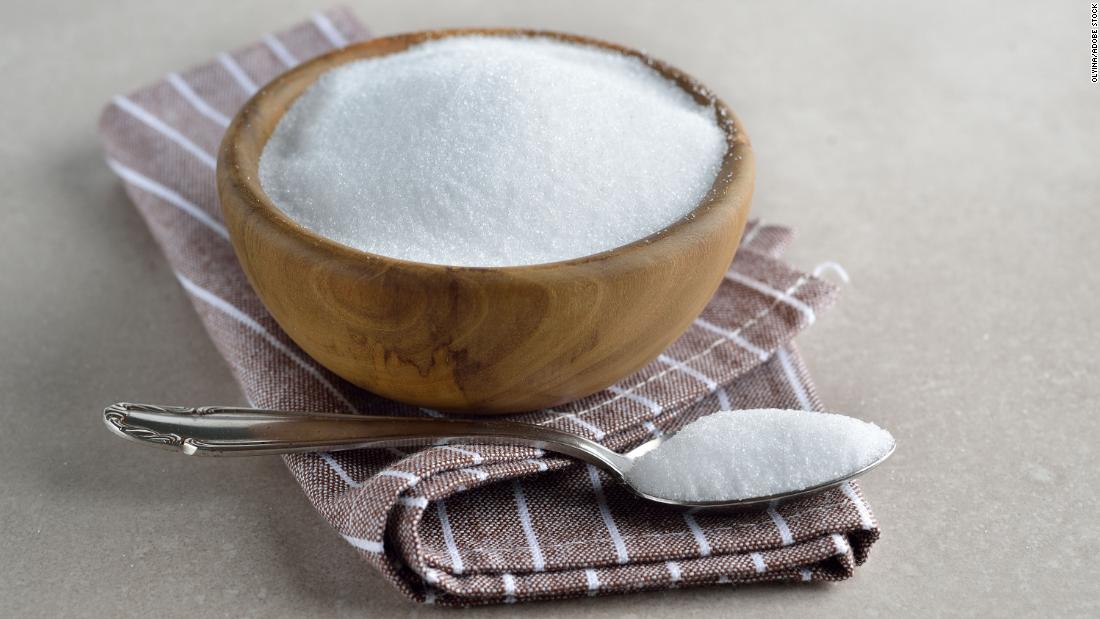- by foxnews
- 14 Mar 2025
Don't use sugar substitutes for weight loss, World Health Organization advises

Don't use sugar substitutes if you are trying to lose weight, according to new guidance from the World Health Organization.
The global health body said a systematic review of the available evidence suggests the use of non-sugar sweeteners, or NSS, "does not confer any long-term benefit in reducing body fat in adults or children."
"Replacing free sugars with non-sugar sweeteners does not help people control their weight long-term," said Francesco Branca, director of WHO's department of nutrition and food safety. "We did see a mild reduction of body weight in the short term, but it's not going to be sustained."
The guidance applies to all people except those with preexisting diabetes, Branca said. Why? Simply because none of the studies in the review included people with diabetes, and an assessment could not be made, he said.
The review also indicated that there might be "potential undesirable effects" from the long-term use of sugar substitutes such as a mildly increased risk of type 2 diabetes and cardiovascular diseases.
However, "this recommendation is not meant to comment on safety of consumption," Branca said. "What this guideline says is that if we're looking for reduction of obesity, weight control or risk of noncommunicable diseases, that is unfortunately something science been unable to demonstrate," he said. "It's not going to produce the positive health effects that some people might be looking for."
Non-sugar sweeteners are widely used as an ingredient in prepackaged foods and beverages and are also sometimes added to food and drinks directly by consumers. WHO issued guidelines on sugar intake in 2015, recommending that adults and children reduce their daily intake of free sugars to less than 10% of their total energy intake. Following that recommendation, interest in sugar alternatives intensified, the review said.
"This new guideline is based on a thorough assessment of the latest scientific literature, and it emphasises that the use of artificial sweeteners is not a good strategy for achieving weight loss by reducing dietary energy intake," said nutrition researcher Ian Johnson, emeritus fellow at Quadram Institute Bioscience, formerly the Institute of Food Research, in Norwich, United Kingdom.
"However, this should not be interpreted as an indication that sugar intake has no relevance to weight-control," Johnson said in a statement.
Instead, one should cut back on using sugar-sweetened drinks, and try to use "raw or lightly processed fruit as a source of sweetness," Johnson added.
Robert Rankin, president of the Calorie Control Council, said "low- and no-calorie sweeteners are a critical tool that can help consumers manage body weight and reduce the risk of non-communicable diseases."
The guidance is meant for government health organizations in countries who may wish to use the scientific analysis to implement policy changes for their citizens, Branca said.
"That will likely depend on the way that which sweeteners are consumed in a specific country," he said. "For example, in a country where consumption patterns are high, those countries might decide to take action in a way or another."
A total of 283 studies were included in the review. Both randomized controlled trials, considered the gold standard of research, and observational studies were included. Observational studies can only show an association, not direct cause and effect.
Results from randomized trials found the use of non-sugar sweeteners had a "low" impact on reducing body weight and calorie intake when compared with sugar, and no change in Intermediate markers of diabetes such as glucose and insulin, according to the report.
Observational studies also found a low impact on body weight and fat tissue, but no change in calorie intake. However, those studies found a low increase in risk for type 2 diabetes, high blood pressure, stroke, heart disease and death from heart disease, the report noted. A very low risk was also found for bladder cancer and an early death from any cause.
WHO said that the recommendation was "conditional" because the identified link between sweeteners and disease outcomes might be confounded by complicated patterns of sweetener use and the characteristics of the study participants.
In an emailed statement, the International Sweeteners Association, an industry assocation, said "it is a disservice to not recognise the public health benefits of low/no calorie sweeteners and is disappointed that the WHO's conclusions are largely based on low certainty evidence from observational studies, which are at high risk of reverse causality."
However, observational studies that follow people over time are important, Branca said. "To show that overweight people can reduce their body weight requires a long-term study. And we're not seeing that impact from the research we have."
The recommendation included low or no calorie synthetic sweeteners and natural extracts, which may or may not be chemically modified, such as acesulfame K, aspartame, advantame, cyclamates, neotame, saccharin, sucralose, stevia and stevia derivatives and monkfruit, the report said.
"Stevia and monkfruit are newer sweeteners so so there's less published research in the scientific literature," Branca said. "However they probably work in the body with a similar physiological mechanism as other sweeteners. We cannot say they are different from the others based on the data we have - they play the same role."
Many people consider stevia products to be more "natural," since they are derived from the stevia plant. Some natural and artificial sweeteners add bulking sugars to their products to cut their sweetness and add bulk to the product for baking.
A recent study by researchers at the US-based Cleveland Clinic found erythritol - used to add bulk or sweeten stevia, monkfruit and keto reduced-sugar products - was linked to blood clotting, stroke, heart attack and early death.
People with existing risk factors for heart disease, such as diabetes, were twice as likely to experience a heart attack or stroke if they had the highest levels of erythritol in their blood, the study found.
Just as many people have learned to eat and cook without salt, they can learn to reduce their dependence on free sugars and non-nutritive sweetners, Branca said.
"We need to target children in early life," he said. "For example, why do parents typically use sweeteners as a reward for children and after almost every meal? We need to recommend to parents to avoid building that sweetness Interest in young children - that's a very important action to take."
Even if you are a true sugar "addict," the good news is that you can tame your sweet tooth, registered dietitian Lisa Drayer said in an article for CNN. She provides the following steps:
Train your taste buds. If you gradually cut back on sugar - including artificial sweeteners - and include more protein and fiber-rich foods in your diet, that can help you crave less sugar, Drayer said.
"When we consume protein and fiber, it slows the rise in blood sugar if we consume it with a sugar-containing food. It can help satisfy us and help us reduce our sugar intake as well," she said in a previous interview.
Choose no-sugar-added foods and avoid all sugar-sweetened drinks. For example, choose whole-grain cereal or Greek yogurt with no sweeteners. The sugar-sweetened drinks to take off your grocery list should include sodas, energy drinks, sports drinks and fruit punch. Choose water instead.
"If you like sweet carbonated beverages, add a splash of cranberry or orange juice to seltzer or try flavored seltzers. You can also flavor your own waters with fruit slices for natural sweetness or try herbal fruit teas," Drayer said.
Drink coffee and tea with no or fewer sugars. Be careful at coffee shops, Drayer suggested. All those lattes and flavored coffees can have as much sugar as a can of soda, or more.
Enjoy fruit for dessert. Try cinnamon baked apples, berries or grilled peaches instead of cookies, cake, ice cream, pastries and other sweet treats, Drayer said.
Watch for stealth sugars. Added sugars are often present in foods that you might not think of as "sweet," like sauces, breads, condiments and salad dressings, Drayer said.
"Pre-packaged sauces - like ketchup, BBQ sauce and tomato sauce - tend to be some of the biggest offenders of hidden added sugars in the diet," Kristi King, senior pediatric dietitian at Texas Children's Hospital and a national spokesperson for the Academy of Nutrition and Dietetics, told Drayer in a prior interview.
Check nutrition facts labels. All foods and beverages must list the amount and kind of sugar on the label.
Added sugars can go by other names such as "agave, brown sugar, corn sweetener, corn syrup, dextrose, evaporated cane juice, fructose, fruit juice concentrate, fruit nectar, glucose, high-fructose corn syrup, honey, invert sugar, lactose, malt syrup, maltose, molasses, maple syrups, raw sugar, sucrose, trehalose and turbinado sugar," Drayer said.
The higher up these added sugars are on the ingredients list, the greater the amount of added sugar in the product, she said.
Sign up for CNN's Eat, But Better: Mediterranean Style. Our eight-part guide shows you a delicious expert-backed eating lifestyle that will boost your health for life.
- by foxnews
- descember 09, 2016
Southwest flyers fire back over airline ending free checked bag policy: 'Nail in the coffin'
Southwest has customers sounding off after the airline announced an end to its checked bag policy, leading some flyers to say they'll "boycott" the airline.
read more


